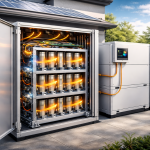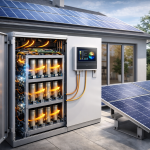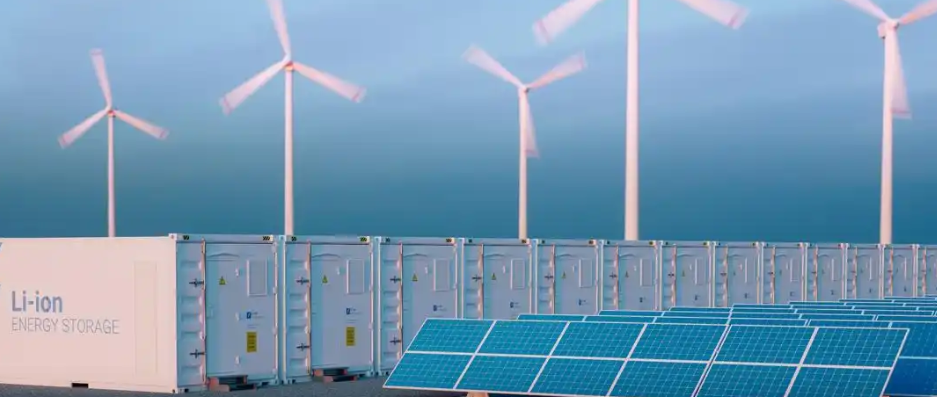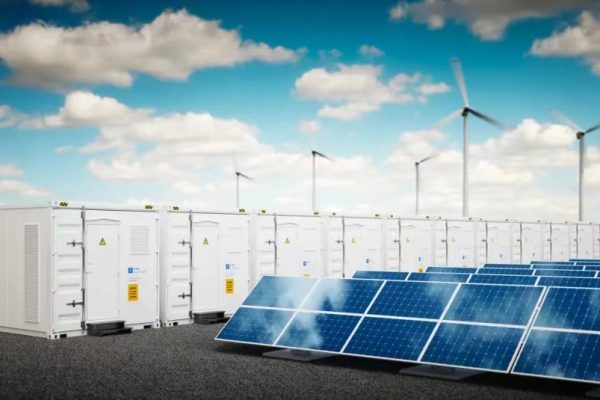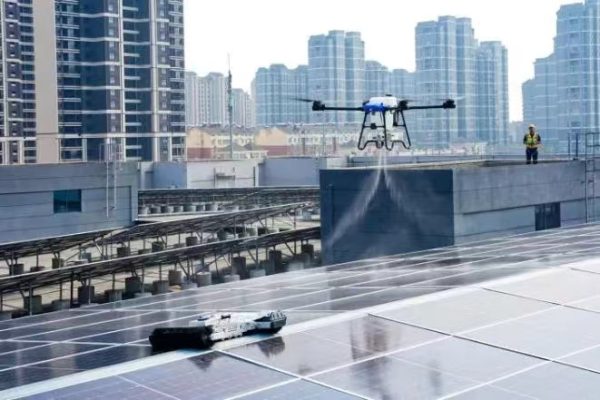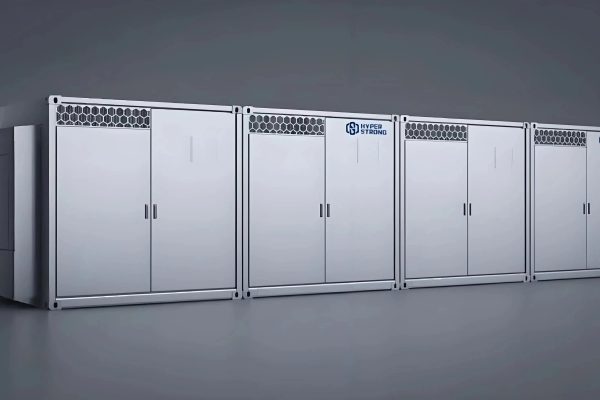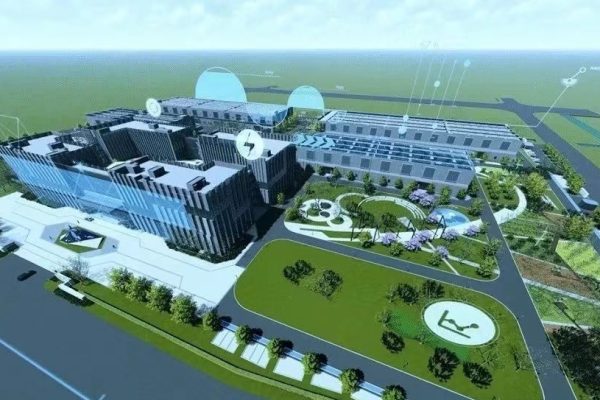☀️ Introduction: Solar Alone Is No Longer Enough
In the era of rising electricity costs and global decarbonization goals, solar power has become a mainstream option for small and medium enterprises (SMEs). However, solar alone is intermittent—it generates power only during the day and often mismatches with actual business consumption patterns.
That’s where PV+ESS systems (Photovoltaic + Energy Storage Systems) come in.
These systems combine solar panels with batteries and a hybrid inverter, enabling businesses to store excess solar energy for later use, reduce grid reliance, and significantly cut electricity costs.
In this article, we’ll break down:
- What a PV+ESS system is
- How it works
- Why it’s especially valuable for SMEs
- What to consider when choosing such a system
- How to begin the transition with minimal risk
🔋 What Is a PV+ESS System?
A PV+ESS system is an integrated energy solution that combines:
- Photovoltaic (PV) solar panels
- Battery Energy Storage System (ESS)
- Hybrid inverter (or battery-compatible inverter)
- Energy Management System (EMS) or simple load controller
This system allows businesses to generate, store, and use their own electricity, both during the day and after sunset, and also act as backup power during grid outages.
💡 Key Functions:
- Self-consumption: Use solar energy generated on-site
- Time-of-Use optimization: Charge battery when grid power is cheap; use it when it’s expensive
- Backup power: Keep critical loads running during blackouts
- Peak shaving: Limit demand charges by supplying load from battery during peak usage
The hybrid inverter is the brain of the system. It controls charging, discharging, and power flow between:
- PV panels
- Battery
- Grid
- Loads (your machines, lights, HVAC, etc.)
🧑💼 Why SMEs Should Seriously Consider PV+ESS
Most SME business owners think solar + storage is for “big factories” or large real estate developers. But that’s outdated thinking.
With battery costs falling and flexible supply chains (like ours!) offering modular, small-scale systems, PV+ESS is now perfectly viable for SMEs—and in many cases, the most cost-effective path to energy independence.
✅ 1. Reduce Electricity Bills by 30–60%
- Store excess solar for night-time use
- Avoid peak-time grid pricing
- Reduce fixed demand charges
“We installed a 30 kW PV+ESS system at our small plastics plant and dropped our energy bill by 52% in six months.” — SME Owner, Malaysia
✅ 2. Backup Power for Business Continuity
If your location suffers from unstable grid power, even a small battery can:
- Keep critical equipment running during outages
- Avoid downtime and lost revenue
- Protect IT servers, lighting, or refrigeration
✅ 3. Enhance ESG and Branding
Today’s customers, investors, and even regulators care about your carbon footprint. Installing a PV+ESS system helps SMEs:
- Cut CO₂ emissions
- Meet internal sustainability goals
- Improve brand image and competitiveness in global procurement
✅ 4. Government Incentives or Net Metering
Many countries now offer:
- Solar tax credits
- Battery installation subsidies
- Feed-in tariffs or net metering schemes
PV+ESS lets SMEs maximize benefits from local energy policies.
🏢 Common SME Use Cases for PV+ESS
| SME Type | Energy Usage Pattern | PV+ESS Benefits |
|---|---|---|
| Small factories | Daytime + some night shift | Peak shaving, backup |
| Cold storage | 24/7 load | Solar + battery = strong ROI |
| Clinics / Pharmacies | Intermittent load | Backup + grid cost reduction |
| Schools / Daycare | Daytime only | Full PV offset + small battery |
| Restaurants | Evening peak | Battery discharge during dinner hours |
🧮 Typical System Sizes for SME PV+ESS
| Load Type | PV Size (kW) | Battery Size (kWh) | Inverter Size (kW) |
|---|---|---|---|
| Small Office | 5–10 kW | 10–15 kWh | 5–10 kW hybrid |
| Workshop | 15–30 kW | 30–50 kWh | 20–30 kW hybrid |
| Light Factory | 30–60 kW | 60–100 kWh | 30–60 kW hybrid |
| Cold Room | 50–100 kW | 100–200 kWh | 50–100 kW hybrid |
We support custom BOM matching based on load curve and budget.
👉 Talk to Us for System Sizing Support
⚠️ What SMEs Should Consider Before Installation
- Roof space & structural load
- Is there enough space for solar panels?
- Load profile
- When is your power demand highest?
- Backup power needs
- Do you want full or partial backup?
- Grid reliability
- Is black-out protection important?
- Budget flexibility
- Should the system be modular or expandable?
🔗 Related Articles for Further Reading (Internal Links)
🛠️ How We Support SMEs as a “Technical Trading Partner”
We are not a manufacturer—but we act as a technical foreign trade partner with strong sourcing, BOM optimization, and rapid project understanding.
For SME clients, we:
- Recommend best-matched inverter + battery models
- Offer flexible quantities (no MOQ)
- Help prepare system layouts & specs
- Assist with quick procurement + shipping
📞 Ready to Start Your Solar + Storage Journey?
Even a 5 kW PV system + 10 kWh battery can make a big impact for your business.
Let us help you evaluate your options—no obligation.
👉 Contact Our Energy Support Team
👉 Browse Our PV+ESS Solutions for SMEs

